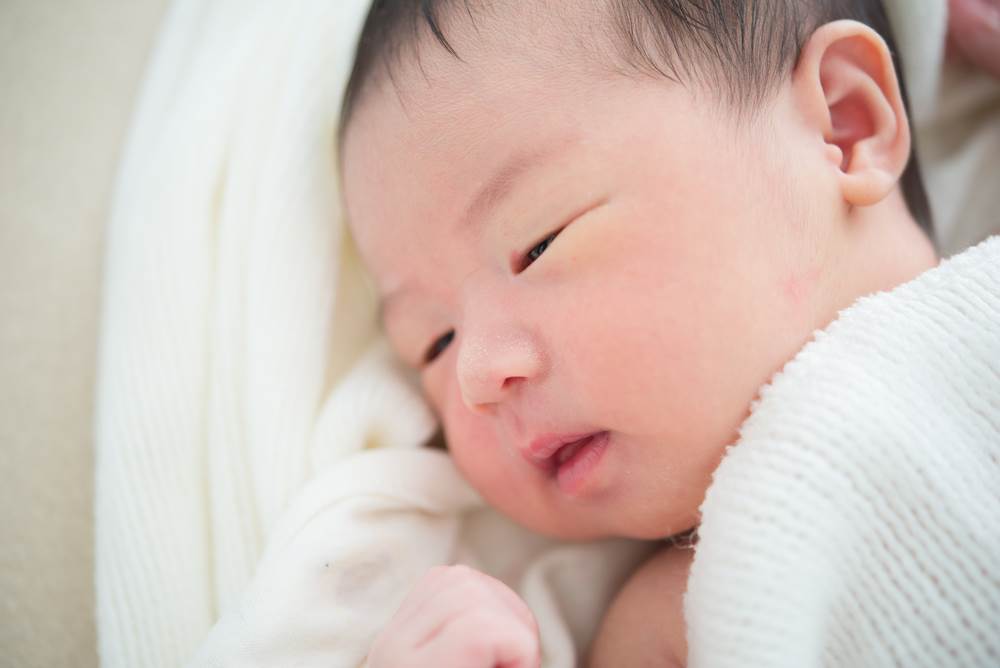Breathing and Your Newborn: What’s Normal and What’s Not
Newborns often have irregular breathing patterns. You may notice your baby breathing fast or taking long pauses between breaths. You might also hear them make unusual sounds or noises. Immediately after birth, they may still have amniotic fluid and meconium in their airways. Newborns breath primarily through their nostrils, but their breathing passages are much smaller, and hence, easier to obstruct. Your baby’s respiration is still developing as they learn to use their lungs and the muscles related to breathing.
While there is usually no cause for alarm, new parents will understandably feel concerned. By paying careful attention to your infant’s typical breathing pattern, you can start to get a grasp for what is normal for your child and you will be able to tell later if something is truly amiss. It’s normal for a newborn to take 30 to 60 breaths per minute. When infants sleep, their breathing may slow to 20 times per minute. By six months of age, babies generally breathe around 25 to 40 times per minute. Infants also frequently take quick breaths and then pause for up to 10 seconds at a time. In contrast, an adult takes about 12 to 20 breaths per minute, which is why new parents may be concerned.
Most newborn breathing irregularities resolve on their own in a few months. After six months, most breathing issues are likely due to allergies or a short-term upper respiratory infection. Contact Entirely Kids Pediatrics for an appointment for your child if a breathing irregularity doesn’t seem to be resolving.

What breathing noises may indicate
As mentioned previously, it’s very helpful to become familiar with your baby’s normal breathing sounds and patterns. If something sounds different or wrong, listen carefully and take notes to share with Dr. Leung.
What’s normal? What’s not?
The following are common sounds and their potential causes:
- Whistling noises – can result from a blockage in the nostrils. After suctioning, the sound disappears. Talk with Dr. Leung about how to gently and effectively suction mucus.
- Hoarse cry or barking coughing – this noise can result from a blocked windpipe but can also be the result of mucus or croup. Croup is typically worse at night.
- Stridor noise – this is a constant, high-pitched sound that indicates an airway obstruction. It is occasionally caused by laryngomalacia.
- Deep coughing – this can be caused by a blockage in large bronchi. Dr. Leung will need to listen with a stethoscope to confirm there is a blockage.
- Wheezing noises – these can be an indication of blockage or narrowing of the lower airways. The blockage or narrowing could be caused by asthma, pneumonia, or respiratory syncytial virus. Fast breathing can also be caused by fever or infections and should be evaluated right away. There may be fluid in the airways from an infection.
- Snoring – can be a result of mucus in the nostrils. Rarely, it can be an indication of an issue such as sleep apnea or enlarged tonsils.
- Grunting noises – an abrupt, low-pitched noise on an exhale can indicate a serious issue with one or both lungs or a severe infection. Call our office immediately if your baby is sick and grunting while breathing.
Tips for parents
Be sure to stay calm and look at your baby to see whether they look like they are in distress. If you are concerned about your baby’s breathing, take a video of your baby’s breathing to share with Dr. Leung.
Always have your baby sleep on their back. This reduces your baby’s risk for sudden infant death syndrome (SIDS). Sleep positioners and wedges are not recommended while feeding or sleeping. These padded risers are intended to keep your baby’s head and body in one position, but are not recommended by the Food and Drug Administration due to the risk of SIDS.
If your baby isn’t sleeping well due to an upper respiratory infection, try using saline drops, which are sold over-the-counter at drugstores. These can help loosen thick mucus. It is not safe to prop your baby up or put their crib on an incline.
Babies may breathe fast when they are overheated or upset. Clothe your baby in breathable fabrics, with only one additional layer more than what you yourself are wearing for the weather that day.
When to call us
Don’t hesitate to contact our office if you’re concerned about your baby’s breathing. Catching a problem early gives your baby the best chance for recovery and reduces the risk of future problems. Dr. Leung should see your child for any of the following issues:
- breathing with nostrils flaring – this means they’re working harder to get oxygen into their lungs
- is lethargic in addition to breathing issues
- has a fever as well as breathing irregularities
- is experiencing difficulties feeding in addition to breathing issues
- has muscles pulling in on the neck, around collarbones, or ribs
- is grunting or moaning at the end of each breath
If your child has any of these symptoms, call 911:
- blue color in lips, tongue, fingernails, and toenails
- doesn’t breathe for 20 seconds or more
In conclusion
Never hesitate to contact our office if something seems wrong. While there is usually no cause for alarm, breathing irregularities can cause new parents a great deal of anxiety. Please contact our office if you’re concerned about your baby’s breathing.

